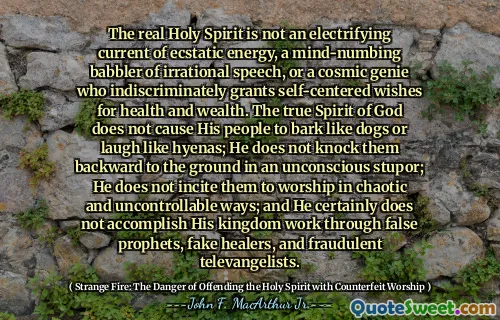
As Philip Jenkins explains, "At its worst, the gospel of prosperity permits corrupt clergy to get away with virtually anything. Not only can they coerce the faithful to pay their obligations through a kind of scriptural terrorism, but the belief system allows them to excuse malpractice."
This quote critically examines a disturbing facet of the prosperity gospel, a theological ideology that has gained prominence in various circles. The author, Philip Jenkins, highlights how this belief system can be exploited by unscrupulous religious leaders to justify unethical behavior and manipulate their followers. The prosperity gospel, which promises material wealth and success as signs of divine favor, often oversimplifies complex spiritual and moral concepts for personal gain. Jenkins underscores a concerning pattern where clergy may abuse their spiritual authority, coercing believers into giving money under the guise of faith and obedience. Such coercion, described metaphorically as "scriptural terrorism," reveals a manipulation that erodes trust and distorts the true message of Christianity, which emphasizes humility, service, and righteousness. Additionally, the quote points out that this ideology creates a moral license for misconduct among leaders, as followers are conditioned to interpret hardships or failures as a lack of faith rather than consequences of unethical behavior. This dynamic can lead to a dangerous environment where accountability is compromised, and transparency is sacrificed in the pursuit of financial or political power. The pervasive acceptance of prosperity teachings pushes vulnerable individuals to prioritize material success over spiritual integrity, risking their spiritual well-being and fostering a culture of deception. Recognizing these dangers is crucial for believers and observers to differentiate genuine spiritual growth from manipulative practices, encouraging a return to biblical principles centered on genuine faith and ethical leadership.








